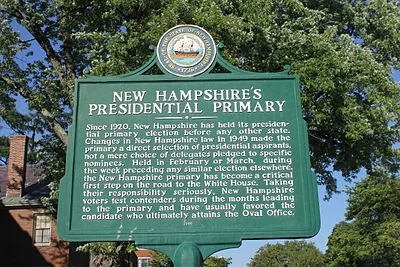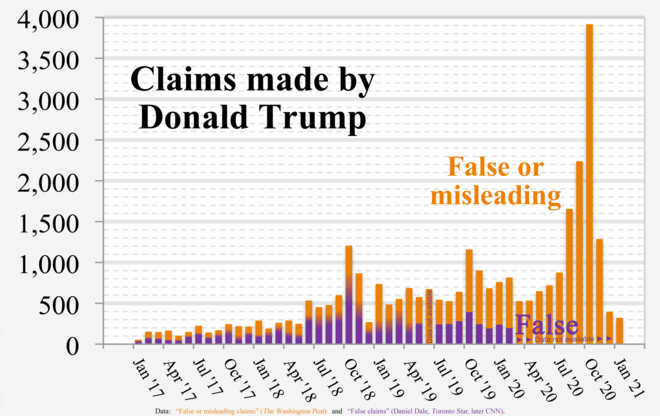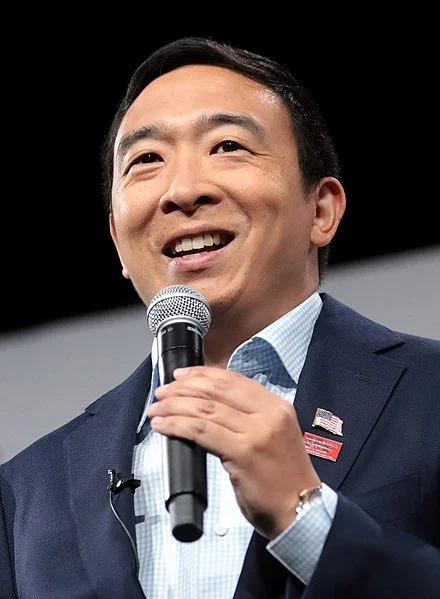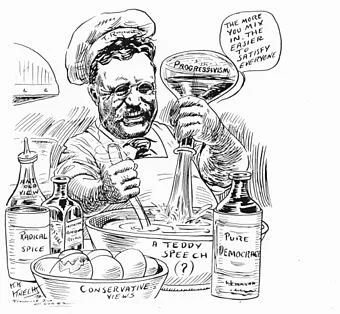
Llewellyn King: Why this is our decade of anxiety
“Anxiety” (1894), by Edvard Munch
WEST WARWICK, R.I.
They say that Generation Z is a generation of anxiety. Prima facie, I say they should get a grip. They are self-indulgent, self-absorbed and spoiled — just like every other generation.
Yet they reflect a much wider societal anxiety. It isn’t confined to those who are on the threshold of their lives.
I would highlight five causes of this anxiety:
The presidential election.
Global warming
Fear of wider war in Europe and the Middle East.
The impact of AI from job losses to the difficulty of knowing real from fake in everything.
The worsening housing shortage.
The election bears on all these issues. There is a feeling that the nation is headed for a train wreck no matter who wins.
Both President Joe Biden and former President Donald Trump are known quantities. And there’s the rub.
Biden is an old man who has failed to convey strength either against Israeli Prime Minister Bibi Netanyahu or the pro-Russian President Vladimir Putin movement in Congress.
He has led on climate change but failed to tell the story.
He has been unable to use the bully pulpit of his presidency and lay out, with clear and convincing rhetoric, where the nation should be headed and how he will lead it there.
And if his health should further deteriorate, there is the prospect of Vice President Kamala Harris taking over. She has distinguished herself by walking away from every assignment Biden has given her, in a cloud of giggles. She has no base, just Biden’s support.
Trump inspires that part of the electorate that makes up his base, many of them working people who have a sense of loss and disgruntlement. They really believe that this, the most unlikely man ever to climb the ramparts of American politics, will miraculously mend their world. More reprehensible are those members of the Republican Party who are scared of Trump, who have hitched their wagon to his star because they fear him, and love holding on to power at any price.
You will know them by their refusal to admit that the last election was honest and or to commit to accepting the result of the next election. In doing this, they are supporting a silent platform of insurrection.
The heat of summer has arrived early, and it is not the summer of our memories, of gentle winds, warm sun and wondrous beaches.
The sunshine of summer has turned into an ugly, frightening harbinger of a future climate that won’t support the life we have known. Before May was over, heat and related tornados took lives and spread destruction across Texas, the Mideast and the South.
I wonder about children who have to stay indoors all summer in parts of Texas, the South and West, where you can get burned by touching an automobile and where sports have to be played at dawn or after dusk. That should make us all anxious about climate change and about the strength and security of the electric grid as we depend more and more on 24/7 air conditioning.
The wars in Europe and the Middle East are troubling in new ways, ways beyond the carnage, the incalculable suffering, the buildings and homes fallen to bombs and shells.
Our belief that peace had come to Europe for all time has fallen. Surely as the Russians marched into Ukraine, they will march on unless they are stopped. Who will stop them? Isolation has a U.S. constituency it hasn’t had for 90 years.
In the Middle East, a war goes on, suffering is industrial and relentless in its awful volume, and the dangers of a wider conflict have grown exponentially. Will there ever be a durable peace?
Artificial intelligence is undermining our ability to contemplate the future. It is so vast in its possibilities, so unknown even to its aficionados and such a threat to jobs and veracity that it is like a frontier of old where people feared there were demons living. Employment will change, and the battle for the truth against the fake will be epic.
Finally, there is housing: the quiet crisis that saps expectations. There aren’t enough places to live in.
A nation that can’t house itself isn’t fulfilled. But the political class is so busy with its own housekeeping that it has lost sight of the need for housing solutions.
There are economic consequences that will be felt in time, the largest of which might be a loss of labor mobility — always one of the great U.S. strengths. We followed the jobs. Now we stay put, worried about shelter should we move.
This is ultimately the decade of anxiety, mostly because it is a decade in which we feel we are losing what we had. Time for us to get a grip.
Llewellyn King is executive producer and host of White House Chronicle, on PBS. His email is llewellynking1@gmail.com, and he’s based in Rhode Island.
Llewellyn King: Political class is hiding between two old men; blame the primary system
An image of an elderly man being guided by a young child accompanies William Blake's poem “London,’’ from his Songs of Innocence and Experience.
The Balsams Grand Resort Hotel, in Dixville Notch, N. H., the site of the first "midnight vote" in the New Hampshire primary.
— Photo by P199
WEST WARWICK, R.I.,
Even political junkies are feeling short of adrenaline. Two old men are stumbling toward November, spewing gaffes, garbled messages and misinformation as the political class cowers behind banners they don’t have the courage not to carry.
If you aren’t committed to Joe Biden or Donald Trump in a very fundamental way, it is a kind of torture — like being trapped in the bleachers during a long tennis match. The ball goes back and forth over the net, your head turns right, your head turns left. You watch CNN, turn to Fox, turn to MSNBC, turn back to CNN. You read The Washington Post, try The New York Times and then pick up The Wall Street Journal.
Over all hangs the terrible knowledge that this will end in a player winning who many think is unfit.
These two codgers are batting old ideas back and forth across the news. We know them too well. There is no magic here; nothing good is expected of either victory. Less bad is the goal, a hollow victory at best.
This is a replay. We can’t take comfort in the idea that the office will make the man. Rather, we feel this time, in either case, the office will unmake the man.
Both are too old to be expected to adequately deliver in the toughest job in the world. Much of the attention about age has focused on Biden, who recently turned 81, but Trump will be 78 in June and doesn’t appear to be in good health, and he delivers incomprehensible messages on social media and in public speeches.
We know what we would get from a Biden administration: more of the same but more liberal. His administration will lean toward the issues he has fought for — climate, abortion, equality, continuity.
From Trump, we know what we would get: upheaval, international dealignment, authoritarian inclinations at home, and a new era of chaotic America First. The courts will get more conservative judges, and political enemies will be punished. Trump has made it clear that vengeance is on his to-do list.
One candidate or the other, we are facing agendas that say “back to the future.”
But that isn’t the world that is unfolding. Daniel Patrick Moynihan, the late, great Democratic senator from New York, said “the world is a dangerous place.”
Doubly so now, when engulfing war is a possibility, when there is an acute housing crisis at home, and when the next presidency will have to deal with the huge changes that will be brought about by artificial intelligence. These will be across the board, from education to defense, from automobiles to medicine, from the electric power supply to the upending of the arts.
How have we come to such a pass when two old men dodder to the finish line? The fact is few expect Biden to finish out his term in good physical health, and few expect Trump to finish his term in good mental health.
How did we get here? How has it happened that democracy has come to a point where it seems inadequate to the times?
The short answer is the primary system, or too much democracy at the wrong level.
The primary system isn’t working. It is throwing up the extreme and the incompetent; it is a way of supporting a label, not a candidate. If a candidate faces a primary, the issue will be narrowed to a single accusation bestowed by the opposition.
What makes for a strong democracy is representative government — deliberation, compromise, knowledge and national purpose.
The U.S. House is an example of the evil that the primary system has wrought. Or, to be exact, the fear that the primary system has engendered in members.
The specter of former Rep. Liz Cheney, a conservative with lineage who had the temerity to buck the House leadership, was cast out and then got “primaried” out of office altogether, haunts Congress.
No wonder the political class shelters behind the leaders of yesterday, men unprepared for tomorrow, as a new and very different era unfolds.
There is a sense in the nation that things will have to get worse before they get better. A troubled future awaits.
On Twitter: @llewellynking2
Llewellyn King is executive producer and host of White House Chronicle, on PBS. He based in Rhode Island and Washington, D.C.
White House Chronicle
David Warsh: Despite it all, I think that Biden will win
Plaque in Concord, N.H.
The Balsams Grand Resort Hotel, in Dixville Notch, N.H., one of the sites of the first "midnight vote" in the New Hampshire primary.
SOMERVILLE, Mass.
This column, named Economic Principals (EP), began forty years ago in The Boston Globe with a commission to write about goings-on within and around the economics profession. It didn’t take long to discover that few readers were sufficiently curious to warrant a sustained diet of economics with a capital E, and so a second column was added, this one about economics and politics.
Becoming unmoored from the newspaper in 2002 has made the mix somewhat richer on political topics, all the more so the tumultuous last few years. In fact, I intend to spend more time on economics, not less, during the next year or two. However, I want to venture a bet on the year – a bet against political acumen.
Of all the issues that EP follows – the wars in Ukraine and the Mid-East, immigration, China, central bank policy, climate change – none is as important this year as the November elections in the United States.
It now seems nearly certain that we Americans are stuck with a re-run of the 2020 election, Joe Biden vs. Donald Trump. Florida Gov. Ron DeSantis’s campaign dissolved in a cocktail of timid captivity to the Trump base and internal dissension. Former South Carolina Gov. Nikki Haley’s gaffe on a voter’s Civil War question revealed all too clearly the dangers of playing to the Trump side of the aisle in the Republican primaries. Big government caused it, she said, failing to mention slavery.
For conventional wisdom in senior Republican Party circles, EP turned, as it does every Wednesday, to Karl Rove, who writes a column in the editorial pages of The Wall Street Journal. A veteran political operative since Richard Nixon’s 1972 re-election campaign, he served as senior adviser to President George W. Bush, and afterwards wrote quite a good book about President William McKinley’s place in GOP history. Rove has the added virtue of making an annual batch of predictions, and toting up the results a year later.
Rove’s presidential prediction for 2024:
“Biden vs. Trump is a chaotic, nasty mess. Mr. Biden counts on Mr. Trump being convicted and voters adjusting to inflation’s effects. Mr. Trump counts on anger over a politicized justice system and Mr. Biden’s age and mental capacity. Most vote for whom they hate or fear less. Mr. Trump is convicted before November yet wins the election while Mr. Biden receives a plurality of the popular vote. The race is settled by fewer than 25,000 votes in each of four or fewer states. Third-party candidates get more votes in those states than Mr. Trump’s margin over Mr. Biden. God help our country.”
EP has in mind the Kansas abortion referendum, of 2022. A ballot initiative amendment to the state constitution had been scheduled for August that year that would have criminalized routine abortions and given the state government the power to prosecute individuals involved in procedures. Six weeks earlier, the U.S. Supreme Court had overturned Roe V. Wade.
The Kansas amendment failed by an 18-point margin, a result ascribed to strong voter turnout and increased registration in the weeks leading up to the vote. In November, 2023, Ohio voters overwhelmingly embraced a constitutional amendment guaranteeing residents access to abortion, becoming the seventh state to affirm reproductive rights in one way or another since the Supreme Court decision.
As Kansas and Ohio voters rejected the Supreme Court’s decision, American voters have the opportunity in the November election next year to overturn the Trump wing of the Republican Party, and not just not just in so-called “battleground states,” of Georgia, North Carolina, Arizona, Nevada, Wisconsin, Michigan, Ohio and Pennsylvania The available mechanism is the same in each case – high voter turnout.
True, Biden’s margin of victory in 2020 was far from a landslide. (Rove thinks this one will be closer.) The element of immediacy will be missing this year, though scheduled trials of the former president will refocus attention on the calculations that led up to the Jan. 6 insurrection. Those annoying third-party candidates are a wild card, as well.
By Novembers, the stakes will be clear. Never mind the avalanche of advertising spending about to descend. Work on getting voters to show up. We are a few good speeches away from resolving the issue. Biden offers some attributes to dislike, many fewer traits to fear.
Americans will try Donald Trump in the courts, reject him in the election. Biden will be re-elected by a clear-cut margin in the autumn. That’s the bet, based on not much more than a hunch. See you here next Dec. 29, to settle up or collect.
David Warsh, a veteran columnist and an economic historian, is proprietor of Somerville-based economicprincipals.com, where this columnist originated.
Llewellyn King: Despair and danger
WEST WARWICK, R.I.
Body language is the new political voice in America.
The language is universal and easily learned because it has just four components: eye-rolling, sighing and shrugging, accompanied by turning hands up.
“Oh my God, it’s a disaster,” is one translation. Another might be, “Don’t ask me, I didn’t sign on for this.”
It belongs — this silent expression of despair about the presidential election, unfolding for 2024 — to old-line Republicans and to a wide swath of Democrats, too.
Political discussion has ended in these groups, replaced by the kind of fatalism summed up in the words of the Irish poet William Butler Yeats that we are slouching toward Bethlehem.
Of course, as Washington Post columnist George Will says, the inevitable isn’t necessarily inevitable. However, at the moment, it looks as if it is.
The despair is spread pretty evenly among Democrat, many of whom consider President Biden too old, and Vice President Kamala Harris not up to the job she has, let alone the presidency.
At 80, Biden is showing reduced vigor and limited mobility, and he favors scripted speeches. This from a politician who was famous for nonstop talking.
Over the years, like other reporters, I have often thought, “Joe, you have made your point, now stop.” These days, you wait in vain for him to go off script. His speeches, which he reads from a Teleprompter, sound as though they were prepared by a committee — lifeless repetition.
He never holds a press conference, a sign of dwindling confidence.
The bigger fear in the Democrats isn’t that Biden is too old but that Harris, at some point, may become president. She has proven herself to be woefully inept and incoherent.
In every assignment Biden has handed her on which she could have shown her worth, she has failed or simply not done. Remember, she was Biden’s point person on the border crisis? She hasn’t been heard from as such.
This past spring, she went to Ghana, Tanzania and Zambia to counter the Chinese and chose to make it an occasion to apologize for slavery. I was born and raised in Africa, in what is now called Zimbabwe, and have traveled extensively on the continent, and slavery isn’t a burning issue. The high point of this visit was Zambia, where Harris’s paternal grandfather came from and where she was welcomed.
China has three great appeals to African countries: It asks no questions, doesn’t lecture on human rights, and pays off the ruling elites, trading these indulgences for minerals.
While Biden and Harris may seem a dangerous pair, Donald Trump, twice indicted (so far), twice impeached, now reduced to feeling sorry for himself on a colossal scale, is terrifying. He has promised an administration of vengeance.
Whereas I can’t find any Democrats who are enthusiastic about the Biden-Harris ticket, I certainly can find far-right Republicans who love Trump. Mostly, they are the working-class White voters, who were once the mainstay of the Democratic Party and now believe that the America they know and want to preserve can only be saved by the reprehensible Trump, with his relentless abuse of all who cross him and endless lachrymose pity for himself.
Trump’s defense of himself is risible, but the faithful Trumpsters believe in him — as much as ever.
They aren’t statistics to me. Recently, my wife and I were eating at a Chinese restaurant in Rhode Island when a couple with a small child took the booth behind us. You might call them the salt of the earth: working people doing their best to raise a family. The husband was complaining loudly about the high cost of living. Then, after seeing Trump on an overhead TV, he said to his wife, “The only honest man is Trump.”
That young father wasn’t alone.
At a neighborhood pub that, in the British sense, is our “local,” the owner and patrons know that both my wife and I are journalists, and because Rhode Island PBS airs our program, White House Chronicle, we are treated with deference. But that doesn’t prevent good, hard-working, fellow patrons, mostly of Italian, Irish and Portuguese stock, from lambasting the media within earshot of us. “It’s all lies.” “They hate Trump because he tells the truth.” They say things like that because they believe them. They are the Trump base.
When I hear that stuff, how do I react? Well, I roll my eyes, sigh, shrug my shoulders, and, if no one is looking, I turn my hands up to the heavens.
On Twitter: @llewellynking2
Llewellyn King is executive producer and host of White House Chronicle, on PBS.
Llewellyn King: Pray tell, Oracle, how we get out of this
“Consulting the Oracle,’’ by John William Waterhouse (1849-1917)
WEST WARWICK, R.I.
When the ancient Greeks wanted to learn what their future held, they would consult with oracles. Alexander the Great, for one, visited the Oracle at Siwa, an oasis in the Egyptian desert. According to his biographer, Plutarch, the oracle told Alexander that he was destined to conquer the world.
In these tumultuous days when we, the electorate are offered a choice between an old, old president and his daffy vice president and a slightly less old vengeful reprobate with a persecution complex, I did the smart thing: I consulted the oracle.
No, I didn’t cross the desert on a camel, nor as Alexander did on his much-loved horse, Bucephalus, nor in a snazzy BMW SUV.
I did go to the oracle of the day, which is the only place I know to seek and get what seems to be extraterrestrial advice: the Bing AI. I asked the oracle several questions and got some interesting answers.
When it came to the big question, I beseeched the Bing AI, “Great Oracle, I am an American voter, and I am in an awful tizzy. I don’t know whom to support in the next presidential election.
“It seems to me that one candidate, President Joe Biden, a decent man, may be too old to navigate the difficult waters ahead in domestic and international affairs.
“As for another candidate, former President Donald Trump, many people find aspects of his conduct reprehensible.
“What to do? For me, this is even harder because I am a columnist and television commentator, and I need to have something to say. I am sure you understand, Great Oracle.”
Well, the Bing AI, clammed up: It delivered only the formal histories of both men.
I had thought my question would spark a revelation, a wise analysis, or a contradiction of my view of the candidates. Clearly, I shall have to wait for the day when I get into real AI chat: ChatGPT.
Mostly, I had thought that the oracle would tell me that all the presidential hopefuls so far will be toast by November 2024; that new candidates will bring us hope, fire up party enthusiasm and let rip.
Are new faces and new choices too much to hope for?
Republicans are wrestling with their prospective candidate after his latest character stain: He has been found liable for defamation and sexual abuse in a civil trial. What does this mean for the whole issue of what we look for in the character of candidates? Rectitude was once considered essential. Not for Trump. Post-Trump is post-rectitude.
Just under 70 percent of the electorate have told pollsters that they think Biden is too old to run for re-election. That isn’t, I submit, a conclusion arrived at by pondering what it means to be 80. That is a conclusion, again I submit, they have come to by looking at the president on TV — on the few occasions they see him there.
Clearly, he doesn’t have the strength or the confidence to hold a press conference. These are vital.
In America, the press conference is the nearest thing we have to question time in the British House of Commons. It is the time of accounting. Biden is behind in his accounting as audited by the press corps.
Harold Meyerson, editor at large of The American Prospect, is avowedly liberal. He is one of the most skillful political writers working today; deft, informed, convincing, and you know where he stands. He stands with the Democrats.
So, it is significant when he raises a question about Biden and when he draws attention, as he did on May 9, to Biden’s absence from public engagement.
Meyerson wrote, “Right now, the Democrats are drifting uneasily toward a waterfall and hoping Biden can somehow navigate the looming turbulence. By autumn, if he hasn’t had some measurable success in … allaying much of the public’s fears of a president drifting into senescence, then some prominent Democrat (a category that doesn’t include Robert Kennedy Jr. or Marianne Williamson) had damn well better enter the race.”
Llewellyn King is executive producer and host of White House Chronicle, on PBS. His email is llewellynking1@gmail.com, and he’s based in Rhode Island and Washington, D.C.
The Centerville Mill, in West Warwick
Chris Powell: Someone is always above the law; UConn rioters
MANCHESTER, Conn.
While former President Donald Trump has long been mainly a grifter, his indictment by a Manhattan grand jury is not justified by the cant coming from Democrats in Connecticut and around the country: the cant that “no one is above the law.”
To the contrary, criminal prosecution is almost always largely a matter of prosecutorial discretion.
Alvin Bragg, the current Manhattan district attorney, ran for office implying that his office would prosecute Trump for something. And now Bragg has persuaded a grand jury to indict the former president for 34 alleged felonies. But Bragg has been routinely reducing felony charges to misdemeanors for offenders who are not named Trump.
Federal and other state prosecutors have so far declined to press against Trump charges like those now being pressed in Manhattan because those other prosecutors considered the evidence too weak.
Bill Clinton broke criminal law while in office but received prosecutorial discretion, being considered above the law.
Connecticut is full of prosecutorial discretion. The state long has put illegal immigrants above the law, facilitating their breaking of federal immigration law and obstructing its enforcement by federal agents. Lately Connecticut also has been putting marijuana users and sellers above the law, pretending that federal drug law -- which, rightly or wrongly, continues to criminalize the drug -- is nullified by the state law that actually has put state government itself into the marijuana retail licensing business.
Indeed, U.S. Atty. Gen. Merrick Garland has formally stated that President Biden’s Justice Department has decided that enforcing federal marijuana law in states that don’t want it enforced would not be a good use of the department’s resources -- still more prosecutorial discretion that puts people above the law. So much for the U.S. Constitution’s command that the president “shall take care that the laws be faithfully executed.”
Connecticut’s law against murder does not seem to be enforced in New Haven, Bridgeport and Hartford as well as it is in Woodbridge, Easton and Avon. About 80 percent of the murders in the last several years in New Haven remain unsolved. There is plenty of discretion as to where the state allocates its police resources.
Sometimes prosecutorial discretion may serve a more cosmic form of justice. Sometimes prosecutorial discretion is political opportunism. But someone everywhere is always above the law.
xxx
Just as its men’s basketball team was winning the national college championship and putting the University of Connecticut in the spotlight across the country, dozens of students rioted on the campus at Storrs, pulling down lampposts, breaking windows and starting fires, discrediting the university at what should have been its most glorious moment in years. Fourteen people, most of them students, were arrested, and 16 others were injured badly enough by the mayhem to be hospitalized.
The university’s admissions department has a lot to answer for. How do such thugs get into something that calls itself higher education?
Of course, the thugs have even more to answer for than the admissions department does. Having been arrested, some may actually be prosecuted, though most criminal charges in Connecticut these days are so heavily discounted in court that the law has lost deterrence. Most of the young rioters probably will be penalized in court with nothing more than probation.
The university promises its own vigorous internal discipline of the rioters, including possible expulsion. UConn should regularly update the public about that process -- to reassure the public and deter any other thugs on campus. The basketball team, its coaching staff, its fans, and everyone else in Connecticut deserved far better, and the state needs to be shown that, at least at UConn, nobody is above the law.
xxx
A reader offers what might strike most people as a good idea: that each criminal court in the state should issue a weekly report of cases concluded and their outcomes, and that newspapers should publish the reports. But it won’t happen because the General Assembly, with a far-left political majority obliged by Gov. Ned Lamont, lately has been ordering the erasure of criminal records.
Most legislators and the governor think the public knows too much about criminal justice.
Chris Powell is a columnist for the Journal Inquirer, in Manchester (CPowell@JournalInquirer.com).
David Warsh: How America can get out of its political mess
Not much “unum’’ lately
SOMERVILLE, Mass.
The end of Joe Biden’s difficult first year in office evoked all kinds of comparisons. New York Times columnist Bret Stephens recalled successful presidential partnerships with strong chiefs of staff – Ronald Reagan and Howard Baker, George H.W. Bush and James Baker. Stephens asked, “What’s Tom Daschle up to these days?” Nate Cohn, also in The Times, compared Biden’s legislative strategy to that of Franklin D. Roosevelt in 1933, to Biden’s disadvantage. I asked a friend who has known Biden for forty years.
I don’t think you can pin the things that Bret Stephens doesn’t like about the Biden presidency on the staff…. Is Biden missing someone who could talk him out of bad calls? Could a Tom Daschle serve as a keel for Biden the way Leon Panetta did for Bill Clinton? … Doubtful. Think back on how Biden ran his campaign in 1987 and in 2020: lots of cooks in the kitchen. The only one he really trusted was his sister. He delegated authority to nobody. His campaigns were organizational [smash-ups]. Some people never change. At least his heart is in the right place.
Myself, I thought of the two-year presidency of Gerald Ford. The common denominator is that both Ford and Biden had to deal with long national nightmares.
As president, Ford had it easy. After 25 years as a Michigan congressman from Grand Rapids, Republican minority leader for the last nine of them, he was the first political figure to be appointed vice president, under the terms of the 25th Amendment. Vice President Spiro Agnew resigned in October 1973, having plead guilty to a felony charge of tax evasion. Ford succeeded him in December. When Richard Nixon resigned the presidency in August, 1974, after an especially damaging White House tape recording was released, Ford was sworn in.
In his inaugural address, Ford stated “[O]ur long national nightmare is over. Our Constitution works; our great republic is a government of laws and not of men.” A month later he pardoned Nixon for any crimes he might have committed as president. Nixon’s acceptance was widely viewed as tantamount to an admission of guilt, and the former president withdrew from public life pretty much altogether. Ford’s two years in office were a stream of politics as usual. Disapproval of the pardon weighed against him; so did the fall of Saigon, in April 1975. He ran for the presidency in 1976, but was defeated by Jimmy Carter, governor of Georgia.
As president, Biden faces almost the opposite situation. First, Trump lost the 2020 election, which he then falsely claimed he had won, Next, he apparently sought to interfere with the vote of the Electoral College, for which he is now under investigation. He continues to interfere in Republican primaries, and has threatened to mount a second presidential campaign. Meanwhile, much of Biden’s ambitious legislative agenda has bogged down and his popularity has dwindled in public opinion polls.
What chain of events will allow some future president to pronounce a benediction on the Trump nightmare? My hunch is that a relatively moderate Republican with no previous ties to Trump can be elected, possibly in 2024; if not, in 2028. That is easier said than done. The problem is getting by the Republican convention. It all depends in large measure on the results of the mid-term elections; on the Republican primaries in 2024; and on Biden’s standing at the end of his term, when he will be 82 years old. .
Republican contenders are already edging away from Trump, Gov. Glenn Youngkin, in Virginia; Gov. Ron DeSantis, in Florida. It is not necessary to disavow Trump’s political platform, if anyone besides Joe Biden remembers what it was – less supply-chain globalization; more domestic infrastructure investment; immigration reform (whatever that is!); recalibration of foreign relations, China and Russia in particular. All these positions are capable of commanding support among independent voters
It is Trump himself whose character must be thoroughly rejected. That will happen by degrees. There will be no pardon this time. The next president, whoever it is, will continue to leave matters up to the courts. And, sooner or later, the lingering nightmare will end.
David Warsh, a veteran columnist and an economic historian, is proprietor of Somerville-based economicprincipals.com, where this essay first ran.
Llewellyn King: Taking the stand for the truth, not a political party; beware false equivalence
An angel carrying the banner of "Truth", in Midlothian, Scotland.
WEST WARWICK, R.I.
I remember the feeling in newsrooms back in the 1960s, as many journalists began to have doubts about the Vietnam War.
In those big workspaces where newspapers come together and broadcasts are assembled, the Vietnam War was taken by journalists to be the good guys versus the bad guys -- the way it had been in the two world wars and the Korean War. But by the mid-1960s, the media were turning against the war.
Some reporters went to Vietnam, the rest of us edited and sometimes melded several files from the war.
Initially, coverage reflected simply what the U.S. commanders were saying in daily briefings from Saigon. As our colleagues on the ground in the war zone began to tell a different story from the official one, editors and writers far from Vietnam began to change their views. Enthusiasm turned to doubt, followed by an anti-war sentiment. The media, in its way, had found its conscience.
Media doubt accelerated as the war dragged on and turned to something close to hostility. I was privy to this because I circulated as a desk editor between three newspapers: the Washington Daily News, the Washington Evening Star, and the Baltimore News-American, finally roosting at The Washington Post.
The American Newspaper Guild passed an anti-war resolution at its annual convention in Dallas in 1969. This side-taking disturbed many journalists. It wasn’t objective, but it passed anyway.
Today, the media landscape is different. There are many more partisan outlets in broadcasting and fewer strong, local newspapers. And there is the whole new world of social media, which defies monitoring. Still the reporting is done by the mainstream media, and from this all-else flows.
While the attitudes of the mainstream are important, they aren’t as commanding as they were in the time of the Vietnam War -- in the time when the nation watched the evening news with total belief and hung on every word from Walter Cronkite.
I have a strong sense of that same struggle between the professional requirement for objectivity and the private conscience is testing the media today just as it did in the days of the Vietnam War.
Can we still cover the divisions of today as an event, as we do most things, or is it morally different?
There is an emerging consensus that journalists collectively -- and a more disaggregated group couldn’t be imagined than the irregular army of nonconforming individualists which make up the Fourth Estate -- are concerned about the survival of democracy. The very basis of our freedoms, of our pride, and even of our history as a free nation capable of the orderly and willing transfer of power is at stake. You can’t work in media now and not feel the sense of the nation going off the rails.
It is, I submit, a turning point when journalists of conscience can’t fall back on the old rules of objectivity, giving one opinion and countering it with another. To give the other side, when you, the writer, know the other side is a contrived lie, is to give credence to the lie and further extend its malicious purpose.
You can’t give the lie the same credence as the truth or you will hide in false equivalence and fail the public.
Even journalists I know who are socially and politically conservative are signing on to the idea that they must take a stand for the truth.
The Big Truth being that Joe Biden won the presidential election, verified over and over again by recounts and court findings. The false equivalence would be to repeat the Big Lie and say at the end of a report, “But supporters of Donald Trump assert the election was rigged.”
When you know that the future of our democracy is in the balance, as a journalist, you feel it is time to take a stand; not to stand with Democrats, but to stand with the truth.
Llewellyn King is executive producer and host of White House Chronicle, on PBS. His email address is llewellynking1@gmail.com and he’s based in Rhode Island and Washington, D.C.
Linda Gasparello
Co-host and Producer
"White House Chronicle" on PBS
Chris Powell: Scenes from Weimar America; how about neither senile nor crazy, neither far left nor far right?
Adolf Hitler and his followers in 1932, the final year of the Weimar Republic (1919-1933). Genocide and world war followed.
Right-wing vigilante Kyle Rittenhouse shows his stuff.
Car lot destroyed by Kenosha rioters.
MANCHESTER, Conn.
With proto-Nazis and proto-Commies brawling in the streets across Weimar America, it may be more important than ever to recall Supreme Court Justice Felix Frankfurter's wry observation that "the safeguards of liberty have been forged in controversies involving not very nice people."
At best Kyle Rittenhouse is a stupid and reckless kid and a gun nut who enlisted in a search for trouble and found it in Kenosha, Wis., among rioters, some of them armed, who purported to be enraged by the shooting of a Black man by local police.
Carrying a military-style rifle, Rittenhouse went to Kenosha in the name of protecting property against rioters and ended up killing two of them and maiming a third, all of them white, as Rittenhouse himself is.
Rittenhouse was vigorously prosecuted but, supported by video evidence and even the testimony of a prosecution witness, he maintained that the three men he shot were attacking him, and the jury acquitted him.
Now, because the rioters Rittenhouse shot were rioting in the name of a Black man, the political left is portraying them as martyrs and Rittenhouse as a white supremacist, though there is no evidence that racial oppression was or has ever been his objective. This unfairness to Rittenhouse has prompted the political right to declare him a hero of the right of self-defense and the Second Amendment.
But there were no martyrs or heroes in the brawling in Kenosha, just idiots. When politics is stripped away, Rittenhouse's acquittal fits the facts as the jury could have found them, and if the political left and right were not so crazed and hateful they would be looking for heroes elsewhere.
Of course that's not likely to happen. Instead the Rittenhouse case is inspiring protests and confrontations throughout the country, including Connecticut, where a week ago a group that had been threatening to level the Amazon warehouse in Windsor because ropes resembling nooses had been found there began blocking traffic in the center of Manchester.
Blocking traffic is a good way of looking for trouble too, especially when so many people are stressed and on edge because of the lengthy virus epidemic. People protesting in the name of environmental protection lately have been blocking traffic in the United Kingdom and getting attacked by people trying to get to work.
So as the Rittenhouse verdict protesters were blocking traffic in Manchester, a car stopped in front of them and then slowly pushed through them before driving off. The protesters were able to get out of the way and no one was really hurt, but they all were indignant that their lawbreaking wasn't appreciated but instead was resented as a provocation.
Indeed, some of them are gun nuts just like Rittenhouse and have carried and displayed guns at their previous protests, though no one has been threatening them. In Manchester last weekend they claimed to be armed as well and seemed to want to be considered heroes for not shooting at the car that had nudged them out of the way.
There is good identification of the car and if the police locate and arrest the driver maybe Manchester will be the scene of another trial to which racial implications will be falsely and opportunistically attached. As in Kenosha, MSNBC and Fox News could cover it and designate new heroes and villains, and the verdict could set off its own protests and riots.
Or maybe, realizing that there are still many more civilized ways to make a point, people could resolve to make their points without getting into each other's faces, even if that is less dramatic and satisfying to the ego.
xxx
A national poll three years ago found that nearly half the country questioned President Trump's mental stability and intelligence. Now another national poll has found that about half the country questions President Biden's mental fitness for his office and believes that his health is deteriorating.
Unfortunately, other polls say Vice President Kamala Harris's standing with public opinion is even worse.
So the next act of politics in Weimar America may be the restoration of Trump, unless someone soon can start a sensible third party whose platform might be simple:
Neither crazy nor senile, neither far left nor far right.
Chris Powell is a columnist for the Journal Inquirer, in Manchester.
David Warsh: A smelly red herring in Trump-Russia saga
Herrings "kippered" by smoking, salting and artificially dyeing until made reddish-brown, i.e., a "red herring". Before refrigeration kipper was known for being strongly pungent. In 1807, William Cobbett wrote how he used a kipper to lay a false trail, while training hunting dogs—a story that was probably the origin of the idiom.
Grand Kremlin Palace, in Moscow, commissioned 1838 by Czar Nicholas I, constructed 1839–1849, and today the official residence of the president of Russia
SOMERVILLE, Mass.
A red herring, says Wikipedia, is something that misleads or distracts from a relevant and important question. A colorful 19th Century English journalist, William Cobbett, is said to have popularized he term, telling a story of having used strong-smelling smoked fish to divert and distract hounds from chasing a rabbit.
The important questions long have had to do to do with the extent of Trump’s relations with powerful figures in Russian before his election as president; and with whether the FBI did a competent job of investigating those charges.
The herring in this case is the Durham investigation of various forms of 2016 campaign mischief, including (but not limited to) the so-called “Steele Dossier’’. The inquiry into Trump’s Russia connections was furthered (but not started) by persons associated with Hillary Clinton’s campaign. {Editor’s note: The political investigations of Trump’s ties with Russia started with anti-Trump Republicans.}
Trump’s claims that his 2020 defeat were the result of voter fraud have been authoritatively rejected. What, then, of his earlier fabrication? It has to so with the beginnings of his administration, not its end. The proposition that Clinton campaign dirty tricks triggered a tainted FBI investigation and hamstrung what otherwise might have been promising presidential beginning has been promoted for five years by Trump himself. The Mueller Report on Russian interference in the 2016 election was a “hoax,” a “witch-hunt’’ and a “deep-state conspiracy,” he has claimed.
Today, Trump’s charges are being kept on life-support in the mainstream press by a handful of columnists, most of them connected, one way or another, with the editorial page of The Wall Street Journal. Most prominent among them are Holman Jenkins, Kimberly Strassel and Bret Stephens, now writing for The New York Times.
Durham, a career government prosecutor with a strong record as a special investigator of government misconduct (the Whitey Bulger case, post 9/11 CIA torture) was named by Trump to be U.S. attorney for Connecticut in early 2018. A year later, Atty. Gen. William Barr assigned him to investigate the president’s claims that suspicions about his relations with Russia had been inspired by Democratic Party dirty tricks, fanned by left-wing media, and pursued by a complicit FBI. Last autumn, Barr named Durham a special prosecutor, to ensure that his term wouldn’t end with the Biden administration.
There is no argument that Durham has asked some penetrating questions. The “Steele Dossier,” with its unsubstantiated salacious claims, is now shredded, thanks mostly to the slovenly methods of the man who compiled it, former British intelligence agent Christopher Steele. Durham’s quest to discover the sources of information supplied to the FBI is continuing. The latest news of it was supplied last week, as usual, by Devlin Barrett, of The Washington Post. (Warning: it is an intricate matter.)
What Durham has not begun to demonstrate is that, as a duly-elected president, Donald Trump should have been above suspicion as he came into office. There was his long history of real estate and other business dealings with Russians. There was the appointment of lobbyist Paul Manafort as campaign chairman in June 2016; the secret beginning on July 31 of an FBI investigation of links between Russian officials and various Trump associates, dubbed Crossfire Hurricane; Manafort’s forced resignation in August; the appointment of former Defense Intelligence Agency Director Michael Flynn as National Security adviser and his forced resignation after 22 days; Trump’s demand for “loyalty” from FBI Director James Comey at a private dinner a week after his inauguration, and Comey’s abrupt dismissal four months later (which triggered Robert Mueller’s appointment as special counsel to the Justice Department): none of this has been shown to do Hillary Clinton’s campaign machinations.
The Steele Dossier did indeed embarrass the media to a limited extent – Mother Jones and Buzzfeed in particular – but it was President Trump’s own behavior, not dirty tricks, that disrupted his first months in office. Those columnists who exaggerate the significance of campaign tricks are good journalists. So why keep rattling on?
In the background is the 30-year obsession of the WSJ editorial page with Bill and Hillary Clinton. WSJ ed page coverage of the story of John Durham’s investigation reminds me of Blood and Ruins, The Last Imperial War 1931-1945 (forthcoming next April in the US), in which Oxford historian Richard Overy argues that World War II really began, not in 1939 or 1941, but with the Japanese invasion of Manchuria in 1931. Keep sniffing around if you like, but what you smell is smoked herring.
David Warsh, a veteran columnist and an economic historian, is proprietor of Somerville-based economicprincipals.com, where this essay originated.
© 2021 DAVID WARSH
Chris Powell: Biggest barrier to GOP in Conn. in ‘22 and ‘24 is Trump redux
MANCHESTER, Conn.
Republicans did fairly well in Connecticut's municipal elections last week, picking up many suburbs and smaller towns, holding the mayoralties in some smaller cities -- New Britain, Danbury, and Norwich -- gaining the mayoralty in Bristol, and nearly gaining the mayoralty in heavily Democratic and poorly managed West Haven, which was being looted right under the mayor's nose by one of her confidants.
Bristol hosts the studios of ESPN, and Lake Compounce, founded in 1846 and the United States's oldest continuously operating theme park. Bristol was well known as a clock-making city in the 19th Century. The American Clock & Watch Museum is there, as well as the site of the former American Silver Company and its predecessor companies.
"The map is setting up beautifully for 2022 for Republicans," their state chairman, Ben Proto, crowed.
But not so fast.
First, municipal elections are the least determined by party principles and the most by local personalities. Indeed, municipal government in Connecticut has little to do with public policy. Most of its finances are on automatic pilot, a matter of just signing off on government employee union contracts devised under the pressure of binding arbitration and causing the great majority of municipal expense.
Second, Connecticut remains a solidly Democratic state. Nobody last week paid much attention to the usual huge Democratic pluralities in the big cities, since the election results there were pre-ordained. But those pluralities will reappear next year in the statewide election, where they are usually decisive no matter how well Republicans do elsewhere.
And third, Donald Trump didn't haunt Connecticut Republican campaigns this year. Since next year's election is a congressional election and Trump seems to be planning to run for president again in 2024, Connecticut voters soon may be reminded of him a lot more. The Biden administration is so incompetent and extreme leftist that it may be possible to imagine Trump winning in 2024, but it is not possible to imagine him carrying Connecticut. It is easy to imagine him destroying the Republican Party here next year and in 2024 just as he destroyed it last year, wiping out the gains that Republicans had been making in the General Assembly.
Escaping Trump remains the great challenge of any Republican who wants to win in Connecticut. It shouldn't be impossible, since many Republican policies could win a referendum in Connecticut and can be advocated without reference to Trump, while the Trump problem is mainly a matter of his hateful character and demeanor. But many Connecticut Republicans -- maybe a majority of the most active ones, primary voters -- are devoted to that character and demeanor and rather than give them up might prefer to lose on policy forever.
Using specific state issues against his Democratic opponent, Virginia's new Republican governor-elect, Glenn Youngkin, held Trump at bay without alienating Trump supporters. So the more Connecticut's Republican candidates press specific issues next year, the more they may cause people to put policy ahead of Trump. As the village rabbi in Fiddler on the Roof replied when asked if there was a blessing for the czar: "May God bless and keep the czar -- far away from us."
xxx
In any case going into next year's state election Connecticut Republicans are likely to get help from the craziness of the leftists who dominate the state's Democratic Party and make it hard for Gov. Ned Lamont to maintain a moderate stance.
City administrations, including Hartford's, are sure to provide Republicans with plenty of campaign fodder if the Republicans have the nerve to risk controversy. For example, according to The Hartford Courant, last week a city government committee drafted plans for the city's experiment with a program of "universal basic income."
The idea is to give $500 a month, unconditionally, to 25 single parents or guardians. But the committee thinks that it needs a mechanism for determining whether the money really reduces stress in the lives of the recipients. So the committee may propose making recipients undergo invasive tests to measure their stress hormones.
Of course winning a lottery's grand prize or inheriting a great amount of money may cause the stress of figuring out what to do with it. But since when is any special research needed to determine whether $500 more per month will make someone's life easier?
The movie Animal House famously depicted the statue of college founder Emil Faber inscribed with the moronic motto "Knowledge is good." Hartford could add, so scientifically: "Money too."
Chris Powell is a columnist for the Journal Inquirer, in Manchester.
Fact-checkers from The Washington Post, the Toronto Star, and CNN compiled data on "false or misleading claims" (orange background), and "false claims" (violet foreground), respectively.
Philip K. Howard: Reframing Andrew Yang’s ideas for a new political party
Andrew Yang
Every so often, a citizen emerges to challenge the political establishment. Ross Perot’s 1992 presidential run drew on a public hunger for a new approach; he received 20 percent of the vote. In 2016 Donald Trump steamrolled traditional Republican candidates and changed the party’s face to his own. Andrew Yang is more a firecracker than a depth charge, but he has captured the public imagination with his refreshing candor and fearlessness.
Unlike Perot or Trump, Yang came from nowhere—no public reputation, no big money, no access to any part of the establishment. Yet, by force of his personality, Yang now has a pedestal in the political landscape. In his new book, Forward: Notes on the Future of Our Democracy, Yang plants the flag of a new political party. He argues that, though Americans are not as polarized as polls suggest, neither existing party will address the legitimate needs of the other side. He also says that the two parties are comfortable with their duopoly of failure—first you fail, then I fail—and therefore will not support disruptive electoral reforms such as ranked-choice voting.
Yang is not the first to suggest that our two political parties no longer represent most Americans. Frank DiStefano, in his recent essay in these pages, argued that the parties are on “a locked-in path to destruction and decline.” In my 2019 book, Try Common Sense, which Yang cites, I said that each party’s outmoded ideology precludes the overhauls needed to respond to public frustration.
It is no surprise that a plurality of voters now identifies as “independent” or as a member of a third party. But the electoral machinery makes it difficult for a would-be candidate to operate outside the two parties; and the primary system promotes extremists, not problem solvers.
Yang’s idea of a party is, initially, not one with its own candidates but a centrist movement that exercises influence on candidates from both parties. As DiStefano elaborates it, a movement that captures public imagination can eventually take over or supplant one of the parties. The challenge is to galvanize public support for this type of new overhaul movement in a political environment like today’s, which breeds deadlock, not solutions. While many Americans might be receptive to a new party, the current political shouting match has left them exhausted and cynical. There is a huge gulf today between wanting change and rolling up your sleeves to force change.
So, what does it take to engender the excitement needed for a new movement? Yang proposes a six-point platform for his Forward Party:
1. Ranked-choice voting, with open primaries: These arrangements would reduce the stranglehold of the two parties and defang the extremists.
2. Fact-based governing: The idea here is to evaluate programs objectively.
3. Human-centered capitalism: Yang wants to re-center business around employees and communities, not just owners.
4. Effective and modern government: Here Yang embraces the need to “fix the plumbing” of paralyzed government.
5. Universal Basic Income: Giving Americans $1,000 per month was Yang’s signature proposal in his presidential campaign—a proposal that was validated, he argues, by the Covid relief payments.
6. Grace and tolerance: Yang urges Americans to be more accepting of each other, not stay locked in a battle of identity politics.
By opening the door to a new party, Yang once again reveals solid leadership instincts. But a new movement requires a tougher, more focused platform. A list of centrist do-good reforms is unlikely to elicit the public passion needed to dislodge the current parties. Yang himself is a bold and disarming figure; his party must be as well. A new party needs a clarion call that can galvanize popular support—as the Progressive Movement did, for example, with its vision of public oversight of food and fair practices, or the New Deal with its idea of social safety nets. Successful movements also energize public passion by fingering villains, as the Tea Party and Occupy Wall Street did.
To get Americans out of their easy chairs, the new party must light a bonfire. Yet Yang’s platform is soporific, with no inspirational theme or evil targets. What’s the vision? Who are the enemies? Here is the way I would reframe Yang’s proposed Forward Party.
First, the clarion call for a new way of governing: Responsibility for America. Americans have lost their sense of self-determination. We should be re-empowered to make a difference. Revive individual responsibility at all levels of society. Replace mindless bureaucracy with accountability for results. Teachers should be free to do their best, with authority to maintain classroom discipline. Principals should be free to hold teachers accountable, and the same should hold true all the way up the chain of responsibility. Officials must be free to authorize action within a reasonable timeframe; and they, too, must be accountable up the chain of responsibility. Mayors and police chiefs should have authority to manage the police force and other departments, including authority to promote public employees who do their jobs and fire those who don’t.
Reviving human responsibility requires overhauling government’s operating systems, replacing thick rule books with simpler goals and principles managed by people who take responsibility for themselves and are accountable to others. This is not so hard: It is far easier to agree on goals than to bicker over endless details of implementation. Modern American government has become basically a bad form of central planning, tying Americans into knots of red tape. Ask any teacher or doctor. Restoring responsibility would empower officials and citizens to govern better and adapt to local needs.
Second, identify enemies and attack them. Powerful forces will resist a movement to revive responsibility. I see two main villains: public unions, which exist to block all accountability, and the political parties themselves, which have become organs of identity politics and special interests. It is impossible to fix broken government or revive a shared sense of national purpose without defeating these villains.
Public unions have made government unmanageable and must be outlawed. Public unions have preempted democratic governance. Citizens elect leaders to run the police force and schools, but these leaders have no authority to fulfill this responsibility. The Minneapolis mayor appointed the police chief; but under the police union’s collective-bargaining agreement, the mayor lacked authority to fire the rogue cop who killed George Floyd—or even to reassign the officer. Unlike private unions, which are dependent on the success of a private enterprise, public unions retain power even where they cause government to fail miserably.
Democracy is supposed to be a process of giving officials responsibility and holding them accountable. But public unions have broken the links: Today, there is zero accountability in the daily operations of American government. Without accountability, rote compliance with the thick rule books replaces individual responsibility for results. The bottom line today is a government bogged down in a bureaucratic jungle of dictates and entitlements. Nothing much works sensibly or fairly because no one is empowered to make things work.
As for political parties, they compete through failure, not achievement. Party leaders have basically given up on reforming government. Instead, they take turns in power pointing to the failures of the incumbent. In 2016 presidential candidate Donald Trump tapped into broad public frustrations with Washington. Trump’s erratic leadership opened a door through which Joe Biden entered, offering sanity. But Biden’s failures of execution in Afghanistan and on the Mexican border now empower Republicans to go on the attack and prepare for their own return.
This spiral of negative democratic competition is accelerated by the rise of extremism: Each side stokes fear of the extremists on the other (“Defund the police!” “Stop the steal!”). Actually fixing government is no longer the way the parties compete.
Each party will aggressively resist reforms that would revive responsibility. Public unions have a stranglehold on the Democratic Party. Identity groups on the left will resist any accommodation of other points of view, or what Andrew Yang calls “grace and tolerance.” Republicans have become a party of nihilism and offer no discernible governing vision. They will rail against any reform that empowers public officials, opens elections to moderate candidates, or imposes taxes for public projects.
The existing political parties are the problem, not the path to a solution. The new party envisioned by Yang must ultimately supplant one of them. The new party must ask its supporters to defeat the defenders of the status quo: They are not the agents but the enemies of a successful future. Generating public enthusiasm will require not a laundry basket of reforms but a spear with a sharp point. No matter which party is in charge, focus on its virtually unblemished recent record of failure.
America needs a new party. Its vision must be condensed into a new governing principle that resonates with American values and represents a clean break from bureaucratic paralysis—a principle like human responsibility, which can guide an overhaul of all levels of government.
The current state of American politics has squeezed all energy and hope out of our democracy. There’s no oxygen to serve as fuel for anyone who wants to do what is needed. Yang has cracked open a door, but we need a new vision to open it wide and attract a public enervated by decades of failure.
Philip K. Howard, a New York-based lawyer, author, civic and cultural leader and photographer, is founder of the government- and legal-reform nonprofit organization Common Good (commongood.org) and author, most recently, of Try Common Sense: Replacing the Failed Ideologies of Right and Left (2019). This essay first appeared in American Purpose.
Theodore Roosevelt, the Progressive Party’s (aka “Bull Moose Party’’) presidential candidate in 1912, mixing ideologies in his speeches in this 1912 editorial cartoon by Karl K. Knecht (1883–1972) in the Evansville (Ind.) Courier. The former president’s running mate was California Gov. Hiram Johnson.
David Warsh: Trump keeps grifting; what next for Bloomberg?
Bloomberg’s headquarters tower on Lexington Avenue in Midtown Manhattan
SOMERVILLE, Mass.
Donald Trump is planning to start a social-media network to compete with Twitter and Facebook, which have kicked him off their platforms. Digital World Acquisition Co. (DWAC), a so-called blank-check company, or SPAC, plans to fund Truth Social, Trump’s venture, with the $290 million that the company has raised from institutional investors, merging itself out of existence in the process. DWAC shares closed Friday at $94, a ten-fold increase over their initial offering price a few days before, having traded as high as $175 during the day. Trump’s alternative to Twitter is scheduled to launch next month.
But Truth Social seems unlikely to succeed.
Whatever the case, investors in what by then will be listed as Trump Media & Technology Group will be able to continue trading with each other, after the DWAC evanesces. The Wall Street Journal on Oct. 23 explained the road ahead. Bloomberg Opinion columnist Matt Levine commented, “If you are in the business of raising money to fund a social media company that you haven’t built yet and perhaps never will, the SPAC format has a real appeal.” In other words, Trump Social is another example of pure Trump fleece.
Meanwhile, there is Bloomberg L.P., almost the polar opposite of what Trump intends.
By now the Bloomberg story is well known, thanks to Eleanor Randolph’s excellent 2019 biography: how the 38-year-old Salomon Brothers partner was first banished to the computer room, then squeezed out of the firm altogether after a merger, only to surface two years later, aided by MerrillLynch (which still owns 12 percent of the company), with a proprietary bond-price data base and a package of related computer analytics, a system he first called Market Master.
Bloomberg terminal-subscription growth (at $24,000 a year apiece!) was so explosive in the ‘80s that, by 1990, Bloomberg was able to start a news service, hiring Matthew Winkler, the WSJ reporter who had covered his rise, as its first editor-in-chief. Bundled with Bloomberg analytics, Bloomberg News grew by leaps and bounds as well, until it rivaled powerhouse Reuters, the world’s oldest and largest news agency. John Micklethwait, editor of The Economist, replaced Winkler and continued to build its staff, hiring newspaper veterans and various media stars, But Bloomberg News’s product remains almost entirely online, which limits its influence in some critical dimensions. I read it there; it is not the same as print.
True, there is Bloomberg Businessweek. Bloomberg bought the time-honored title from McGraw-Hill in 2009, at a fire-sale price, inserted his name, and gave it a complete makeover. The magazine arrives via postal mail, one day or another each week, and often many more days go by before I open its cover. When I do, I am always impressed by its contents, especially the decent, moderate Republican tone of its editorials, in sharp contrast to the over-the-top WSJ editorial page. But there is something about the weekly magazine format that no longer works, at least for those lacking leisure. The Economist fares only a little bit better at my breakfast table.
Bloomberg, 79, was elected three time mayor of New York City. He ran unsuccessfully for president in 2020. It is well-documented that he has long hoped to buy a newspaper – either the WSJ or the NYT. I’d like to know something about Donald Graham’s discussions with Bloomberg before Graham decided to sell The Washington Post to Amazon billionaire Jeff Bezos at a bargain price. My hunch is that Bezos’s four children loomed large in his thinking (Graham was a third-generation steward of what after 75 years had become a family paper.)
Today Bloomberg is worth $60 billion. So why doesn’t he start a print newspaper? Name it for something other than himself. Model it, loosely, on the Financial Times. Print it at first in a dozen US cities, where dense home-delivery audiences exist. He is still young enough to enjoy presiding over an influential print paper for a dozen years or more. He already employs most of a first-rate staff. Moreover, he has two daughters, Georgina and Emma, living interesting lives, waiting in the wings.
David Warsh, a veteran columnist and an economic historian, is proprietor of Somerville-based economicsprincipals.com, where this column originated.
Llewellyn King: The Internet — where lies tangle with truth
“The Internet Messenger,” by Buky Schwartz, in Holon, Israel
WEST WARWICK, R.I.
In this, the Information Age, truth was supposed to be the great product of the times. Spread at the speed of light, and majestically transparent, the world of irrefutable truth was supposed to be available at the click of a key.
The Internet was to be like “Guinness World Records,” conceived by Sir Hugh Beaver, managing director of the Guinness Brewery, when he missed a shot while bird hunting in Ireland in 1951. This resulted in an argument between him and his hosts about the fastest game bird in Europe, the golden plover (which he missed) or the red grouse. The idea for a reference book that would settle that sort of thing was born, which could help promote Guinness and settle barroom disputes.
The first edition was published as “The Guinness Book of Records” in 1955 and was an instant bestseller. You might have thought that there was a thirst for truth as well as beer.
Despite the U.S. Supreme Court’s (dominated by Republican justices) repeated rejection of any suggestion that the presidential election of 2020 was fraudulent and that it wasn’t won by Joe Biden, the Republican governor of Texas, Greg Abbott, has called a rare special session of the Texas legislature to pass a restrictive voting package that will likely include the power for the legislature to overturn any election result it deems fraudulent.
This is happening across Republican-controlled states. They are ready to fix something big that isn’t broken.
Abbott has called the special session because the Texas legislature -- thanks to the Democrats denying him quorum in a parliamentary procedure -- didn’t get what amounts to a rollback of democracy in the regular session. Second time lucky.
What these Republicans are doing is equivalent to forcing men to wear blinders so they don’t stare at naked women on our streets, even though there are no naked women on our streets. Better be sure.
Behind all this rebuttal of truth is the Big Lie. It is promoted, cherished and burnished by Donald Trump and those who swallowed his brand of fact-free ideology. The Big Lie is with us and will cast its shadow of pernicious doubt over future elections down through time. The loser will cry fraud and state lawmakers will, under the new scheme of things, be entitled to overturn election results, violating the will of the people to serve their own political goals.
Mark Twain wrote a short essay in 1880 entitled “On the Decay of the Art of Lying.” If Twain were alive today, he might be tempted to retitle his work “The Ascent of the Art of Lying.”
The extraordinary thing about the Big Lie is its blatancy; the fact that it has been found untrue by the courts and by every investigation, yet it rolls on like the Mississippi, unyielding to fact, unimpeded by truth.
The Big Lie is an avalanche of political desire over democratic fact. It introduces corrosive doubt where there is no justification. It is a virus in the body politic that may go dormant but won’t be eradicated. The host body, democracy, is weakened and the infection can flare at any time, triggered by political ambition.
Historically, there have been primary sources of information and tertiary sources of doubt or refutation. For example, some believed that the oil companies were sitting on a gasoline substitute that would convert water to fuel. That is a falsehood that has been spread since the internal combustion engine created a need for gasoline. It was believed by a few conspiracy theorists and laughed off by most people.
When the fax machine came into being in the mid-1970s there were those who thought that the Saudi Arabian regime would fall because information about liberal society was getting into the country. Instead, Saudi conservatism hardened and there was no great liberalization. Today Saudis are online and there is no uprising, no government in exile, no large expatriate community seeking change. Truth hasn’t overwhelmed belief.
It is an awful truism that people believe what they want to believe, even if that requires the suppression of logic and the overthrow of fact. Gradually all facts become suspect, and the lie fights hand to hand with the truth.
As newspaper people joke, “Don’t let the facts stand in the way of a good story.” Democracy isn’t a good story; it is the great story of human governance. And it is being subverted by lies.
Llewellyn King is executive producer and host of White House Chronicle, on PBS. His email is llewellynking1@gmail.com, and he’s based in Rhode Island and Washington, D.C.
Llewellyn King: About the border wall: U.S. immigration policy must be ad hoc
Trump stands in front of a section of border wall near Yuma, Ariz., in June 2020
WEST WARWICK, R.I.
Going to the border and harrumphing won’t solve the very real immigration problem, which pits our humanity against our sovereign entitlement to say what kind of people we are.
We are not alone in this struggle.
The world is on the move. Untold millions of people who live south of our border with Mexico want to move north. Equally untold millions who live in Africa would like to move to Europe; and millions in eastern Europe want to live in western Europe.
From the Indian subcontinent, millions would like to move to Europe, especially to Britain. Millions of East Asians have their eyes set on Australia.
Within these areas, people also are on the move. Millions from Venezuela have flooded their neighboring countries. Likewise in Africa, where war and famine are ever present, people try and walk to a marginally better future in another country. In the Middle East, Jordan and Lebanon are flooded with refugees first from Palestine, then from Iraq and Syria.
As The Economist pointed out recently, a slum in Spain is incalculably superior to a slum in Kenya.
The drivers for migration are poverty, violence, crop failure and political collapse. And persecution, ethnic and religious; for example, the Rohingya in Myanmar have sought refuge in Bangladesh.
The goal of the migrant is the same worldwide: a better, safer life.
The political price paid by the stable democracies continues to be huge. It played a role in Donald Trump’s election and will play a role in the next presidential election, whether Trump runs or not. It was the great driver for Brexit and Britain’s seeming self-harming. It has driven the move of Hungary, under Viktor Orban, to autocracy.
It is hard to stop people who have nothing to lose from crossing a frontier if they can. But they aren’t the only migrants. Some, a small number, are opportunists. These are the migrants who overstay student visas, manipulate qualifications for residence, and willfully circumvent the law or contract so called green card marriages.
But they aren’t what the border crisis is about -- any more than it is what the overloaded boats crossing the Mediterranean Sea is about. It is the physical manifestation of desperation.
Because the migration problem is so complex – human problems are almost by definition complex— it isn’t a matter of resolution so much as management. We want, for example, immigrants with high-tech skills, but we are worried about the impact of millions of desperate peasants walking across the deserts.
Now a new driver of migration has opened: global warming. The heat and drought hitting the U.S. West Coast are also hitting Central America and will affect livability.
Adding to the complexity of the immigration conundrum is the labor shortage. Construction depends on immigrant labor, farming on contract labor, and slaughterhouses and chicken processors can’t stay open without immigrants to do the unappealing work.
One small step forward would be a sensible work permit.
It seems to me that the wall -- Trump’s wall – isn’t a bad thing. It is a declaration, a symbol. It won’t deter desperate people and it won’t end smuggling. The latter is going to get worse with drones and even autonomous aircraft that can bring their lethal cargoes deep into the United States.
While there is an insatiable market for drugs here, smuggling will continue and even increase. And while that is so, lawlessness south of the border will accelerate.
Sadly, despite Vice President Kamala Harris’s statements, we aren’t going to repair the countries to our south overnight. But we might look to repairing our drug policy, seeing if that can be adjusted to take the profit out of the trade. Except for the gradual, local legalization of marijuana, we haven’t contemplated drug management, short of prohibition, in a century. A new look is due.
There is no single policy that is going to solve the human misery south of the border which drives so many to risk their lives or, through love, to send their children north.
Therefore immigration policy will never be a total, sweeping thing, but rather an ad hoc affair: We need some immigrants, we don’t want others; we have big hearts, but we fear immigration that is unchecked.
We fear the political, cultural and social change that immigrants will bring, especially if they are of a common language and background. Pain in Central America is political torture in the United States.
Llewellyn King is executive producer and host of White House Chronicle, on PBS. His email is llewellynking1@gmail.com. He’s based in Rhode Island and Washington, D.C.
Web site: whchronicle.com
Sarah Anderson: Expose those who financed their Fuhrer's Capitol rioters
Trump rioters just before breaking into the Capitol to try to keep their Fuhrer in power
— Photo byTapTheForwardAssist
Via OtherWords.org
Former president Donald Trump narrowly avoided conviction on his second impeachment trial. After delaying the vote till he was out of office, most Republican senators simply said that they couldn’t impeach a “private citizen” — even if he was guilty.
Still, the trial was revealing. And the hunt for the wealthy financiers of the Jan. 6 coup attempt continues.
Throughout his scorching indictment of Trump, lead House impeachment manager Jamie Raskin (D.-Md.) wove in quotes from eminent historic minds, including this one from his late father, Institute for Policy Studies Co-founder Marcus Raskin: “Democracy needs a ground to stand on, and that ground is the truth.”
Raskin’s trial team exposed a great deal of truth as they made the case that Trump was “singularly responsible” for inciting the riot at the Capitol. Raskin pointed out that Trump had “road tested” his tactics for inflaming mobs at his campaign rallies and through Twitter. Social media traffic leading up to January 6 also made clear that dangerous extremist groups were planning a violent attack in the nation’s capital.
And in her widely viewed Instagram video, Rep. Alexandria Ocasio Cortez (D.-N.Y.) recounted that the threat of violence seemed to be widely known, as she started receiving warnings from other members of Congress, including Republicans, a week before the attack.
If plans for the insurrection were no great secret, then the wealthy enablers who financed the “Stop the Steal” convergence should also bear some responsibility. But identifying them is difficult.
“Thanks to a lattice of financial secrecy vehicles,” journalist Casey Michel explained for NBCNews.com, “we may never have a complete financial picture of those who provided the money to organize a rally that descended into chaos and that shook the underpinnings of American democracy.”
We do know, thanks to OpenSecrets, that the Trump 2020 campaign and its joint fundraising committees made more than $3.5 million in direct payments to people and firms involved in the demonstration.
But as the transparency group pointed out, “the campaign used an opaque payment scheme that concealed details of hundreds of millions of dollars in spending by routing payments through shell companies where the ultimate payee is hidden.”
In December 2020, Congress passed a landmark bipartisan bill, the Corporate Transparency Act, which will take a meaningful step toward eliminating such anonymous shell corporations. But it won’t take effect for another two years.
So Rep. Carolyn Maloney (D.-N.Y.) has introduced the Insurrection Financing Transparency Act, which would give U.S. authorities immediate access to the identities of those who financed the Capitol assault.
Another proposed bill, the For the People Act, would also curb dangerous financial secrecy by requiring super PACs and other “dark money” political campaign organizations to disclose their donors.
The events of Jan. 6 have also prompted pro-democracy advocates to step up their demands on corporations to end their political spending.
More than 50 organizations, investment firms, and religious organizations called on large U.S. corporations to take a number of steps to signal their support for democracy. These included ending all super PAC and dark money contributions and pledging to never again provide financial backing for the 147 members of Congress who refused to certify the presidential election.
The groups pointed out that these members have received more than $170 million from corporate and trade group PACs and nearly $2 million from Big Tech companies. In the wake of the insurrection, a number of corporate PACs pulled back their corporate donations to these officials.
The full impact of the Jan. 6 insurrection and the impeachment trial on our democracy will not be known for many years, if not centuries. We can only hope that this national trauma will lead to greater accountability for future political leaders — and their wealthy financial enablers.
Sarah Anderson directs the Global Economy Project at the Institute for Policy Studies.
Mitchell Zimmerman: Democrats would be stupid to try ‘to work with’ an increasingly depraved GOP
A QAnon emblem (upper left) is raised during the 2021 storming of the United States Capitol by Trump cultists. The extreme-right, bogus-conspiracy-based QAnon group has become a particularly violence-prone part of the Republican Party.
— Photo by Elvert Barnes
Trump supporters/cultists at the “Unite the Right’’ rally in Charlottesville, Va., on Aug. 12, 2017
Via OtherWords.org
Unity and bipartisanship sound wonderful. But can anyone explain how “building bridges” to today’s GOP will get anything done?
Republicans now demand “unity” even as many embrace the big lie that President Biden stole the election from Trump — and even after some cheered on the attack on the U.S. Capitol that killed five.
But the bigger difficulty is that there can be no reasonable compromise between those determined to confront the crises America faces and those who deny that the problems exist — and have indeed aggravated them.
Consider the key challenges: climate change, racial injustice and the coronavirus pandemic.
Climate change is upon us: violent superstorms, rising seas, flooding, wildfires, new diseases. But the differences between Democrats and Republicans are not about the best ways to reckon with climate change. They’re about whether climate change is real at all.
President Trump, with support from the rest of the Republican Party, called climate change a “hoax,” actively promoted fossil fuels, and reversed every step taken to stave off climate disaster. There is no “working with” the party that is working directly to worsen the problem.
Likewise for racial bias in American life. This past year massive, multiracial protests against racist police violence and impunity swept the nation, and much of white America finally accepted that racism and white supremacy are ugly realities.
But not the GOP. The Trump-led party cozied up to the “very fine people” who unleashed racist violence in Charlottesville and to the racist street gangs Trump urged to “stand by” until he could fire them at the Capitol.
Promoting white racial resentment has been key to the Republican playbook for decades. So don’t ask the fox to work with the farmer to keep the chicken coop safe.
Finally, should Democrats look for middle ground with Republicans in responding to the pandemic?
Donald Trump made the lethal, worldwide contagion a partisan issue when he claimed it was another hoax and instructed his faithful to fight mask-wearing and social distancing. He developed a movement dedicated to sabotaging the COVID-19 response, threatening public health officials, and demanding businesses reopen whatever the human cost.
Even as Republicans promoted the “liberty” of Trump’s followers to infect others with COVID-19, they opposed strong action to help those tens of millions of Americans facing lost jobs, foreclosure, eviction, and hunger.
Why are Republicans so set against our government protecting us from the consequences of the coronavirus? It’s not really about deficits, which they happily exploded with tax cuts for the rich and bloated Pentagon budgets.
Their real fear is that President Biden’s big response might actually work. They’re counting on Americans continuing to suffer, which may bolster Republicans in the next elections.
So forget about working “with” Republican political leaders.
“Unity” to solve our key problems isn’t possible. Nor is it necessary. Instead, the Democrats should exercise their power without begging for support from Republicans.
Voters gave Democrats the power to put their program into effect. They should seize the opportunity to move boldly, with or without the losers. The voters will get to see how that works out and decide in the next election whether they like what they got. That’s how democracy works.
America desperately needs effective government. If it is “partisanship” for the Democratic Party to provide that without the pretend cooperation of Republicans, let’s have more partisanship.
Mitchell Zimmerman is an attorney, longtime social activist, and author of the anti-racism thriller Mississippi Reckoning.
Chris Powell: Democrats might make sure GOP survives; revolving door keeps spinning for Conn. politicians
MANCHESTER, Conn.
As he skipped the inauguration of his successor and shuffled off to his resort in Florida, has Donald Trump destroyed the Republican Party? Some political observers think so and of course Democrats hope so.
Trump's petulant and even seditious exit from office did him no credit. But then he did not do so badly in the popular vote and the Electoral College, and even landslide defeats in presidential elections seldom knock a major party down for long.
Herbert Hoover led the Republicans to a landslide victory in 1928 over Democrat Al Smith but himself was ousted in a landslide by Franklin D. Roosevelt and the Democrats in 1932.
Barry Goldwater, the Republican presidential nominee in 1964, was derided as far too conservative and was clobbered by Lyndon B. Johnson and the Democrats in 1964, but the Republicans still won the next presidential election, with Richard Nixon.
George McGovern, the Democratic presidential nominee in 1972, was derided as too liberal and lost big to Nixon and the Republicans in 1972, but the Democrats still won four years later with Jimmy Carter.
The reversal of party fortunes in these cases was largely a matter of self-destruction. Hoover turned a stock market crash into the Great Depression. Johnson escalated and failed to win a stupid imperial war. Nixon and his vice president, Spiro Agnew, got caught in criminality. (Even so, Nixon's appointed vice president, Gerald Ford, nearly won the 1976 presidential election for the Republicans anyway.)
Both major parties have influential elements that many voters find objectionable if not repulsive and yet gain big roles when their party is in power. So it is not hard to imagine such elements bringing trouble to Joe Biden's new Democratic national administration even as the Republicans at last may be relieved of the daily embarrassments of Trump's demeanor, especially since, out of office, much civil and even criminal litigation may keep him busy. Additionally, Republicans in Washington may rediscover that being in the minority makes taking potshots easy, far easier than governing.
Will the Biden administration self-destruct with corruption, incompetence, failure, or politically correct nonsense? Maybe not, but with the Democratic margins in Congress being so thin, the new administration may have to be unusually successful to avoid losing control of both houses in the elections two years hence, since mid-term elections usually go against the president's party.
In any case, while good government is good politics, good government seldom lasts long, so defeated parties tend to revive faster than expected.
xxx
Having just left the speakership of Connecticut's House of Representatives, former state Rep. Joe Aresimowicz, D.-Berlin, has quickly moved into a position with Gaffney Bennett and Associates, which calls itself Connecticut's leading government relations firm. Connecticut's “revolving door” law prohibits Aresimowicz from lobbying legislators and government agencies for a year, but obviously the firm believes that he can bring in a lot of good business anyway.
Aresimowicz's transformation may dishearten advocates of the public interest but it's not unusual. The Connecticut Mirror notes that three former House speakers are already lobbying or working for firms that do government relations. The Mirror might have added that a former state Senate leader heads Connecticut's biggest teacher union.
As a legislator Aresimowicz himself was employed by a government employee union. While this presented more than the typical potential conflict of interest most legislators face, it was perfectly legal, since the legislature is nominally part-time work, most legislators must hold other jobs, and Aresimowicz's constituents knew who he was when they elected him.
Former state legislators aren't the only ones drawn to government employment in Connecticut. Many journalists have left news organizations for public-relations positions with government agencies or businesses. Indeed, there now may be more former journalists in government P.R. in Connecticut than there are news reporters.
Government is just where the money is these days. Former legislative leaders don't go to work for the Red Cross, Salvation Army, or Audubon Society, nor do former journalists. There always has been and always will be more money in subverting or deflecting the public interest than in pursuing it.
Chris Powell is a columnist for the Journal Inquirer, in Manchester.
Phil Galewitz: Vt., N.H. and Maine are pushing to import Canadian drugs
The Haskell Free Library and Opera House straddles the border in Derby Line, Vt., and Stanstead, Quebec. The dark line shows the exact border.
Vermont, New Hampshire and Maine, all bordering on Canada, as well as Florida and Colorado, are moving ahead with efforts to import prescription drugs from Canada, a politically popular strategy greenlighted last year by then-President Trump.
But it’s unclear whether the Biden administration will proceed with Trump’s plan for states and the federal government to help Americans obtain lower-priced medications from Canada.
During the presidential campaign, Joe Biden expressed support for the concept, strongly opposed by the American pharmaceutical industry. Drugmakers argue it would undercut efforts to keep their medicines safe.
The Pharmaceutical Research and Manufacturers of America, an industry trade group, filed suit in federal court in Washington, D.C., to stop the drug-purchasing initiatives in November. That followed the Trump administration’s final rule, issued in September, that cleared the way for states to seek federal approval for their importation programs.
Friday was the deadline for the government to respond to the suit, which could give the Biden administration a first opportunity to show where it stands on the issue. But the administration could also seek an extension from the court.
Meanwhile, Florida and Colorado are moving to outsource their drug importation plans to private companies.
Florida hired LifeScience Logistics, which stores prescription drugs in warehouses in Maryland, Texas and Indiana. The state is paying the Dallas company as much as $39 million over 2½ years, according to the contract. That does not include the price of the drugs Florida is buying.
LifeScience officials declined to comment.
Florida’s agreement with LifeScience came last fall, just weeks after the state received no bids on a $30 million contract for the job.
Florida’s importation plan calls initially for the purchase of drugs for state agencies, including the Medicaid program and the corrections and health departments. Officials say the plan could save the state in its first year between $80 million and $150 million. Florida’s Medicaid budget exceeds $28 billion, with the federal government picking up about 62% of the cost.
On Monday, the Colorado Department of Health Care Policy and Financing issued a request for companies to bid on its plan to import drugs from Canada. Unlike Florida’s plan, Colorado’s would help individuals buy the medicines at their local pharmacy. Colorado also would give health insurance plans the option to include imported drugs in their benefit designs.
Kim Bimestefer, executive director of Colorado’s Health Care Policy and Financing agency, said she is hopeful the Biden administration will allow importation plans to proceed. “We are optimistic,” she said.
Her agency’s analysis shows Colorado consumers can save an average of 61% off the price of many medications imported from Canada, she added.
Prices are cheaper north of the border because Canada limits how much drugmakers can charge for medicines. The United States lets the free market determine drug prices.
The Canadian government has said it would not allow the exportation of prescription drugs that would create or exacerbate a drug shortage. Bimestefer said that her agency has spoken to officials at the Canadian consulate in Denver and that officials there are mainly concerned about shortages of generic drugs rather than brand-name drugs, which is what her state is most interested in importing since they are among the most costly medicines in the U.S.
Colorado plans to choose a private company in Canada to export medications as well as a U.S. importer. It hopes to have a program in operation by mid-2022.
But skeptics say getting the programs off the ground is a long shot. They note that Congress in 2003 passed a law to allow certain drugs to be imported from Canada — but only if the secretary of the Department of Health and Human Services agreed it could be done safely. HHS secretaries under Presidents George W. Bush and Barack Obama refused to do that. But HHS Secretary Alex Azar gave the approval in September.
Biden’s HHS nominee, Xavier Becerra, voted for the 2003 Canadian drug-importation law when he was a member of Congress.
HHS referred questions on the issue to the White House, which did not return calls for comment.
Trish Riley, executive director of the National Academy for State Health Policy, said that states have worked hard to set up procedures to ensure drugs coming from Canada are as safe as those typically sold at local pharmacies. She noted that many drugs sold in the United States are already made overseas.
She said the Biden administration could choose not to defend the importation rule in the PhRMA court case or ask for an extension to reply to the lawsuit. “Right now, it’s murky,” she said of figuring out what the Biden team will do.
Ian Spatz, a senior adviser with consulting firm Manatt Health, questions how significant the savings could be under the plan, largely because of the hefty cost of setting up a program and running it over the objections of the pharmaceutical industry.
Another obstacle is that some of the highest-priced drugs, such as insulin and other injectables, are excluded from drug importation. Spatz also doubts whether ongoing safety issues can be resolved to satisfy the new administration.
“The Trump administration plan was merely to consider applications from states and that it was open for business,” he said. “Whether [HHS] will approve any applications in the current environment is highly uncertain.”
Phil Galewitz is a Kaiser Health News journalist.
Phil Galewitz: pgalewitz@kff.org, @philgalewitz
David Warsh: Aaron Burr, the Gunpowder Plot and our current scoundrel-in-chief
Vice President Aaron Burr in 1802
SOMERVILLE, Mass.
Donald Trump has begun appearing in the rear-view mirror. I have compared Trump to Aaron Burr, the scoundrel who sought to overturn the 1800 presidential election in the early days of the Republic. Hit this link for an explanation of what he did.
Later, starting in 1804, Burr sought to invent around U.S. elections altogether, hoping to foment a breakaway-nation that he could govern in the Spanish Southwest.
No other episode in American history comes close. But after following news about the Jan. 6 assault on the Capitol, I’m inclined to believe that the history of England offers a more illuminating comparison. I’ve been thinking about Guy Fawkes and the 17th Century Gunpowder Plot.
The background was the Protestant Reformation, which had begun in Germany, in 1517, with Martin Luther. Starting in 1533, King Henry VIII withdrew Britain its allegiance to the Roman Catholic Church. Catholics, especially Jesuit priests, had a hard time of it under Henry’s daughter Queen Elizabeth I. Elizabeth’s Catholic cousin, Mary, Queen of Scots, was executed for treason in 1587.
Elizabeth died childless, in 1603, without having named an heir. Queen Mary’s son, Elizabeth’s nephew, peacefully acceded to the throne as James I of England and James VI of Scotland. But repression of Catholics continued, and in 1605 a group of English Catholics plotted to blow up the House of Lords during the opening of Parliament, on Nov. 5. Betrayed by a letter of seemingly mysterious provenance, one of the plotters, Guy Fawkes, was discovered guarding 36 barrels of gunpowder in the basement the night before, quite enough to demolish the building. The plotters were captured and, one way or another, put to death, including some Catholic clergy linked to the plot.
The world was smaller then. Passions ran deeper. Globalization had only just begun. But it is hard to think of any other episode in Anglo-American history whose rhetorical aim resembled more closely that of the mob that descended on the U.S. Capitol on Jan. 6, having been dispatched on their mission by President Trump.
One group of skirmishers came within seconds of sighting Vice President Pence as he, along with his wife and daughter, was spirited out of the Senate chamber and into a hideaway, according to a Jan. 16 story in The Washington Post. The gunpowder plotters intended to kill King James and install his nine-year-old daughter on the throne as Catholic monarch. The Capitol Hill mob vigorously denounced Pence as a traitor for his failure to overturn the presidential-election results. A mock gallows was installed on the western approach to the Capitol.
Persecution of Catholics continued but was mild relative to the century before for the remainder of the reign of James I – he died in 1625 – but anti-Catholic sentiment persisted in England for two centuries, through a not-unrelated civil war and a very-related “Glorious Revolution.”
No one knows what might be the long-term effects of the assault on the Capitol. My hunch is that it will be remembered as thoroughly repugnant and rejected and condemned until it is forgotten. For a higher-resolution characterological account of the Trump story, see “What TV Can Tell Us about How the Trump Show Ends,” by Joanna Weiss. The Trump presidency resembled an antihero drama, Weiss says, more closely than reality TV, the saga of Tony Soprano her chief case in point.
With this emergency behind, I am returning this weekly to my main concern, economics, meanwhile finishing a book on the last hundred years of its textbook versions. As for my plans to shift to the Substack publishing platform, they are postponed; Economic Principals will move at the end of the year, by which time the book will have begun wending its way its way to the press. Luck be a lady this year!
David Warsh, a veteran columnist and an economic historian, is proprietor of Somerville, Mass.-based economicprincipals.com, where this column originated.

















































